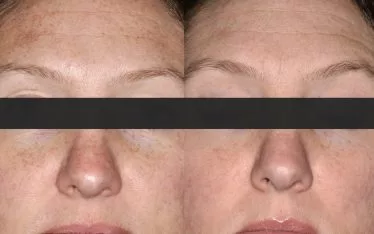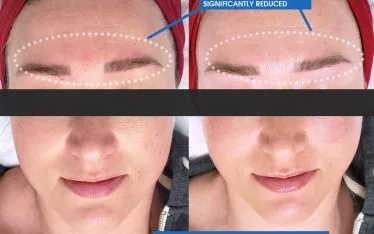The Role of Diet in Maintaining Healthy Skin

The old adage, “You are what you eat,” rings true, especially when it comes to your skin health. Glowy, radiant skin starts inside, and your dietary choices can greatly influence your skin’s appearance, texture, and overall health. Poor nutrition can have a huge impact on your skin, contributing to issues like acne, eczema, and rosacea.
So, if your goal is to achieve beautiful, smooth, and radiant skin, start with your diet. After all, you can slather on as many topical products as you want, but without a good baseline of great nutrition, it’s tough to achieve dewy, healthy-looking skin.
The Science Behind Diet and Health
The skin is the body’s largest organ and a glaring indicator of overall health. Inflammation, oxidative stress, and gut health all play a huge role in how your skin looks from the outside.
The gut-skin axis, for example, paints a picture of how your dietary choices influence your skin’s microbiome balance. If you’re experiencing an imbalance, you might encounter inflammatory skin conditions, such as acne, eczema, or psoriasis.
Nutritional deficiencies or too much of a particular food can either help or hinder your skin’s ability to heal and regenerate. When you consume a well-balanced diet teeming with healthy fats, antioxidants, and hydration, you give your skin much-needed support in skin regeneration, collagen production, and overall radiance.
On the flip side, if you consume a diet loaded with processed foods and sugars, you might run into not-so-great things like breakouts, inflammation, and premature aging.
The Best Foods for Clear Skin
Not all foods are created equally. Some are better for skin health than others. The best foods for beautiful, dewy skin include:
Antioxidant-Rich Foods
Antioxidants combat oxidative stress, a factor that contributes to skin aging and damage. These nutrients neutralize free radicals that can cause premature wrinkles, sagging, and dullness.
You’ll find loads of Vitamin C, for example, in foods like citrus fruits, strawberries, bell peppers. Vitamin C boosts collagen production, which helps with skin firmness and reduces wrinkles.
Nuts, seeds, and spinach contain lots of Vitamin E, which protects against free radical damage and helps you maintain skin health.
Omega-3 Fatty Acids
Omega-3s help reduce inflammation and keep your skin plump and hydrated. They prevent dryness and flakiness while promoting skin elasticity. You’ll find them in fatty fish, like salmon and sardines, as well as flaxseeds and walnuts.
Hydrating Foods
Hydration is a must for skin elasticity and preventing dryness. While drinking water is a great way to stay hydrated, you can also up your hydration game by consuming water-rich foods. Cucumbers, watermelon, celery, leafy greens, and similar foods offer an extra hydration boost that helps your skin retain moisture, keeping it supple and glowy.
Zinc and Selenium
These minerals help regulate oil production and can help reduce the severity of acne by balancing hormonal effects on the skin. You’ll find them in foods like nuts, whole grains, legumes, shellfish, and eggs.
Probiotic and Prebiotic Foods
A healthy gut microbiome is linked to reduced skin inflammation. To maintain a healthy gut, consume plenty of probiotics, which help maintain beneficial bacteria, as well as prebiotics, which feed those bacteria.
Foods like yogurt, kefir, sauerkraut, garlic, and onions are great for your gut and can potentially benefit your skin by reducing inflammation-related skin conditions.
Foods That May Contribute to Skin Issues
Just like there are good foods for your skin, there are not-so-good foods for your skin. These foods include:
- High-glycemic foods: These foods, such as white bread, processed snacks, and sugary beverages, cause rapid spikes in blood sugar and can exacerbate inflammation. These may be considered foods that cause acne.
- Dairy products: Some studies suggest that dairy products, such as milk, cheese, and ice cream, are linked to acne, particularly in people who are lactose intolerant.
- Processed and fried foods: As yummy as they might be, these foods, including chips, french fries, and processed meats, may increase systemic inflammation. This can, in turn, affect skin health and contribute to breakouts.
- Alcohol and caffeine: Consuming too much of either of these can dehydrate your skin, leading to dullness, dryness, and premature aging.
Can Diet Actually Improve Skin Health?
It might sound like a stretch, but yes, research shows that what you eat can affect your skin health. A balanced diet rich in whole foods, antioxidants, fiber, and phytonutrients promotes skin health and prevents related comorbidities.
While it’s not a cure-all for skin problems, a balanced diet can greatly help reduce breakouts, slow down signs of aging, and support wound healing.
Of course, it’s important to remember that moderation is key. Improving your skin doesn’t have to mean cutting out your glass of wine on Friday nights, your favorite ice cream on movie nights, or the occasional fast food dinner. It means prioritizing healthy, balanced foods rich in nutrients.
It’s not about perfection. It’s about balance.
Additional Lifestyle Factors That Affect Your Skin
Diet is a huge part of healthy skin, but it’s not the only thing that affects your outward appearance. Additional lifestyle factors that impact skin health include:
- Hydration: Drinking plenty of water helps with skin elasticity and prevents dryness.
- Quality sleep: Your skin works on repair while you sleep. Ideally, you should aim for 7-9 hours per night to reduce signs of aging and dark circles.
- Stress management: Chronic stress can cause inflammation and breakouts. To keep stress in check, try meditation, yoga, or deep breathing.
- Sun protection: While consuming skin-friendly foods helps, using daily sunscreen is a must to prevent sun damage and premature aging.
Nourish Your Skin From Within
A balanced diet plays a pivotal role in maintaining clear and healthy skin. Consuming a diet rich in nutrient-dense foods and plenty of water can help you achieve clearer, more vibrant skin. However, everybody is different, and if you’re experiencing persistent skin issues, it’s important to see a dermatologist.
Our experienced dermatology team at Clarus Dermatology is here to help you find a personalized skin care plan, alongside your diet for healthy skin, that works for you. Be it medical treatments for acne, cosmetic treatments to smooth fine lines, or surgical treatments to remove a pesky mole, we’re here to help. Contact us today to schedule an appointment.


